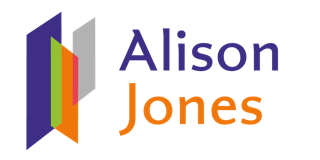I’ve just come off a call with Orna Ross, novelist and founder of ALLi, the Alliance of Independent Authors: we were recording the interview that will go out on 21 July as Episode 71 of The Extraordinary Business Book Club, and it is a belter. I meant to talk about the future of publishing but we got sidetracked onto free writing and the importance of yoga (or possibly running).
I find this more and more as the podcast goes on: I still prepare questions for interviewees, unless they explicitly tell me they’d rather just chat, but I don’t cling to them as slavishly as I did at the beginning. The more interviews I do, the more I find that it’s what I don’t know I don’t know that’s most interesting, and when I allow the conversation to unfold it always – without fail – ends up somewhere more interesting than what I’d originally imagined.
There’s an art to this – being prepared but also being prepared to abandon the script. I found the same thing in coaching: I remember the early days, when I’d prepare a list of insightful questions to ask my coachee based on the last session and clung onto them like a drowning woman. Now that coaching is second nature, it’s a way of approaching the conversation, a mindset, rather than a rigid framework, and it’s so much more effective. The skill becomes transparent, you stop focusing on it and see beyond it to what it makes possible.
I’m teaching myself piano at the moment, just 5 minutes a day as a break from sitting at the screen, and as the fulfilment – finally – of a promise I made to myself aged 7. I’m not a particularly musical person. I play the notes in front of me with a slight edge of desperation, trying to coordinate both hands and read the music at the same time (and still mentally transposing that tricky bass clef two tones down from treble). But if I keep practising, one day I will get past this stage. My fingers will find their places in response to the patterns on the page without conscious thought. And one day I may even close the book and begin to play from memory, or even to improvise. At that point I’ll be approaching the thing with the same attitude that my children have always had when they push me out of the way to have a go: playful and curious.
It’s almost like coming full circle: you do the work until the work becomes purposeful play. It’s a good system.
